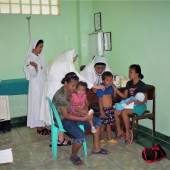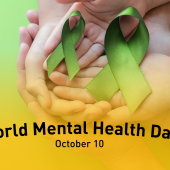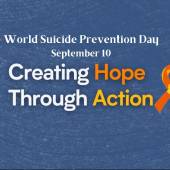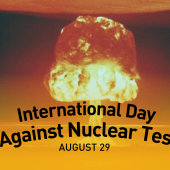World Health Day
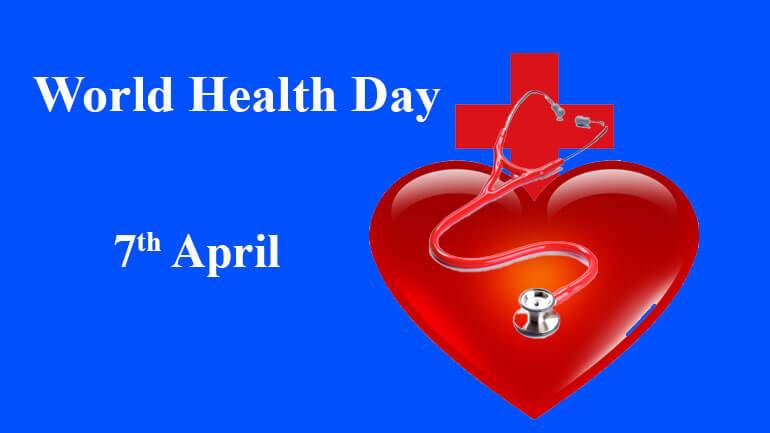
World Health Day is a worldwide health awareness day that is held every year on April 7, under the sponsorship of the World Health Organization (WHO), as well as other related organizations.
In 1948, the WHO celebrated the first World Health Assembly. The Assembly chose to celebrate 7 April of every year, with impact from 1950, as World Health Day.
The World Health Day is held to mark WHO's founding and is seen as an opportunity by the organization to draw global attention to a subject of major importance to worldwide health each year.
The WHO forms international, regional, and local events on the Day linked to a particular theme.
World Health Day is recognized by various governments and non-governmental organizations with interests in public health issues.
World Health Day is one of 11 official worldwide health movements marked by WHO, along with World Tuberculosis Day, World Immunization Week, World Malaria Day, World No Tobacco Day, World AIDS Day, World Blood Donor Day, World Chagas Disease Day, World Patient Safety Day, World Antimicrobial Awareness Week and World Hepatitis Day.
The concept, consequences, and figure of world health go as follows.
Amidst a pandemic, a polluted globe, increasing diseases such as cancer, asthma, heart disease, on World Health Day 2022, WHO will concentrate on pressing activities expected to keep people and the planet sound and cultivate a development to make social orders zeroed in on the prosperity.
WHO assesses that more than 13 million deaths all over the globe every year are because of avoidable ecological causes. This incorporates the environmental emergency which is the single greatest wellbeing danger confronting mankind. The environmental emergency is likewise a wellbeing emergency.
The outbreak of Covid-19 affected world health. According to a visual summary of World Health Statistics 2021, starting on May 1, 2021, more than 153 million affirmed COVID-19 cases and 3.2 million related deaths have been accounted for by WHO.
The Region of the Americas and the European Region have been the most impacted, together with including more than 3/4 of cases detailed worldwide, with separate case rates per 100 000 populaces of 6114 and 5562 and close to half (48%) of all announced COVID-19-related deaths happening in the Region of the Americas, and 33% (34%) in the European Region.
Of the 23.1 million cases detailed in South-East Asia Region to date, more than 86% are credited to India. Regardless of the broad spread of the infection, COVID-19 cases to date seem, by all accounts, to be amassed overwhelmingly in high-income nations (HINs).
The 20 most affected HINs represent close to half (45%) of the world's combined COVID-19 cases, yet they address just a single eighth (12.4%) of the worldwide populace.
Coronavirus has surfaced long-standing imbalances across income groups disturbed admittance to fundamental medications and wellbeing administrations extended the limit of the worldwide wellbeing labor force, and uncovered critical gaps in-country health information systems.
While high-asset settings have confronted difficulties connected with over-burden in the limit of health, the pandemic stances basic difficulties to feeble wellbeing frameworks in low-asset settings and is imperiling hard-won wellbeing and improvement acquires made in late many years.
Information from 35 high-income nations shows that preventive ways of behaving decline as family stuffing (a proportion of financial status) increments.
79% (middle worth of 35 nations) of individuals residing in uncrowded families detailed attempting to truly remove themselves from others contrasted with 65% in very stuffed families.
Regular daily hand washing works (with cleanser and water or utilizing hand sanitizers) were likewise more normal among individuals who resided in uncrowded families (93%) contrasted with those residing in incredibly packed families (82%).
In terms of mask-wearing in public, 87% of individuals residing in uncrowded families wore a mask all or constantly when openly over the most recent seven days contrasted with 74% of individuals living in incredibly packed conditions.
The combination of conditions connected to poverty reduces access to health services and evidence-based data while increasing risky manners.
A Call to Action for World Health
“Health is wealth” is a well-known saying. Pope Francis wrote in his message released on January 12, 2021, that “Investing resources in the care and assistance of the sick is a priority linked to the fundamental principle that health is a primary common good.”
In 2015, member States consented to the United Nations Sustainable Development Goals (SDGs) as a worldwide call-to-action to ensure that all individuals appreciate health, peace, and prosperity by 2030.
Leaders of all nations are called on to guarantee that everybody has living and working circumstances that are helpful for great well-being.
Simultaneously, leaders are encouraged to screen health imbalances and to assure that all individuals can get quality health services when and where they require them.
Radio Veritas Asia (RVA), a media platform of the Catholic Church, aims to share Christ. RVA started in 1969 as a continental Catholic radio station to serve Asian countries in their respective local language, thus earning the tag “the Voice of Asian Christianity.” Responding to the emerging context, RVA embraced media platforms to connect with the global Asian audience via its 21 language websites and various social media platforms.









